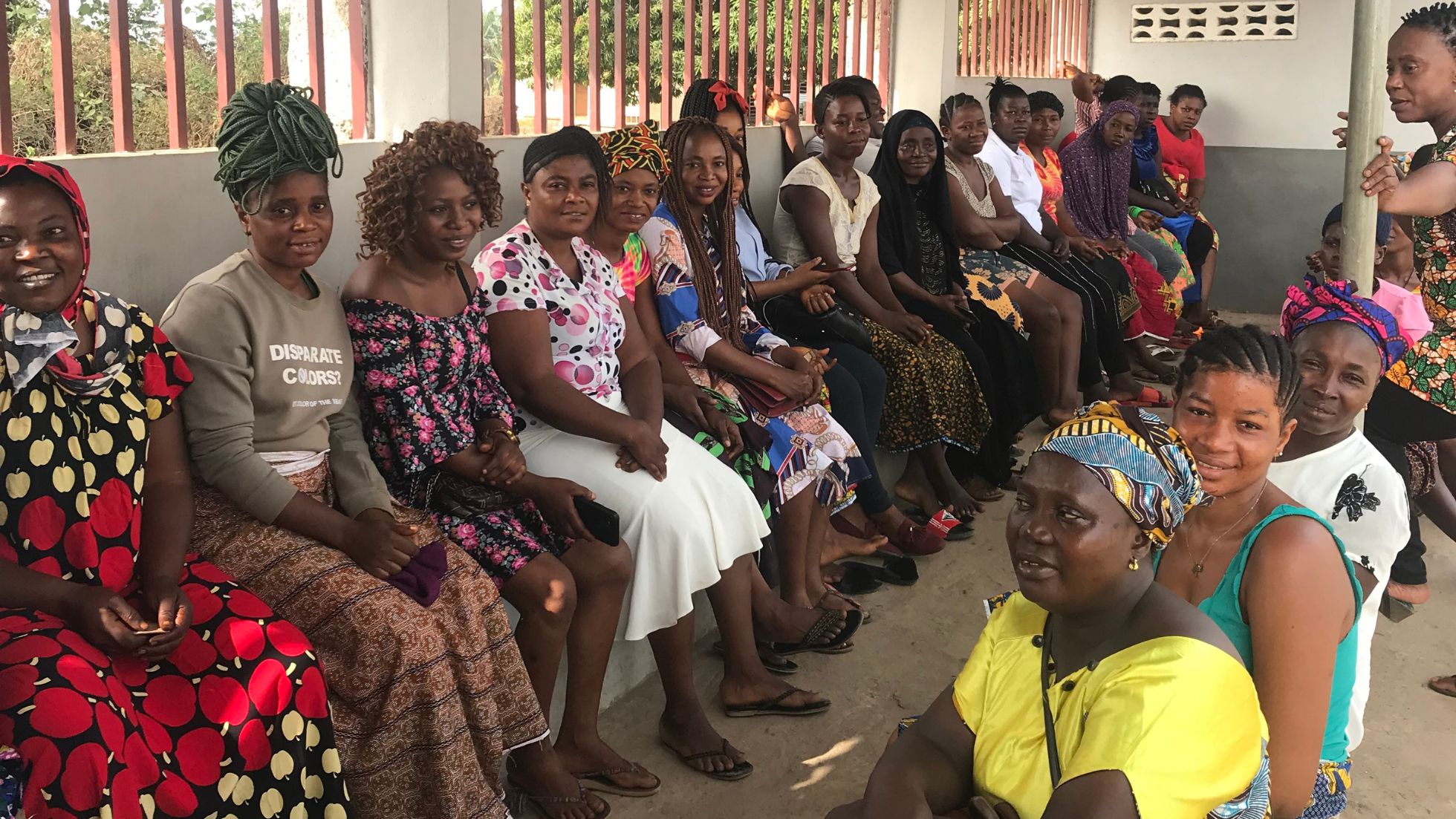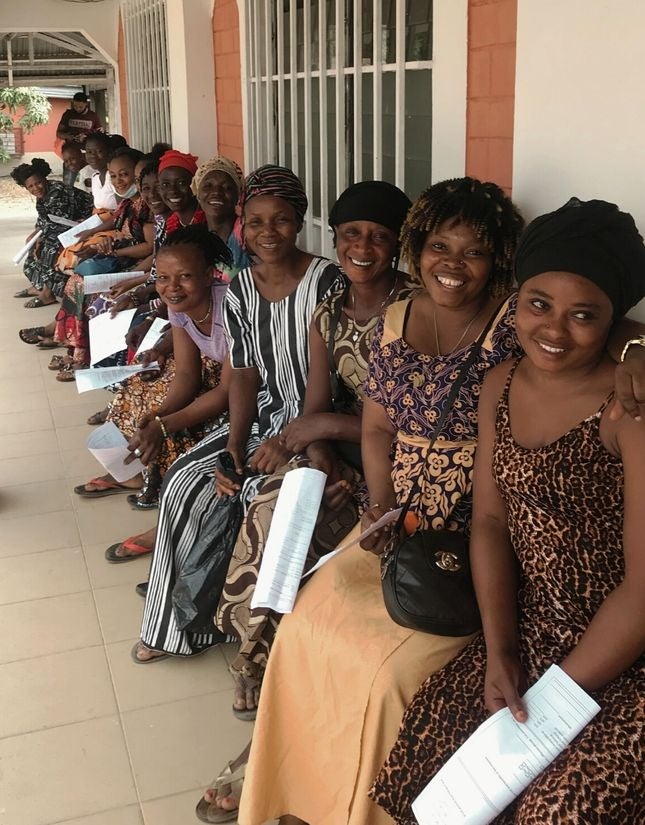
Cervical Cancer Screening Saves Women’s Lives: Launching the first district-wide cervical cancer screening initiative in Sierra Leone
In 2022, after several years in the planning, World Hope International (WHI) launched Sierra Leone’s first district-wide cervical cancer screening initiative in Bombali District, a Northern Province of Sierra Leone. The project is centered around the district capital city of Bombali, Makeni, but importantly reaches out to all communities across the district.

Of all cancers, cervical cancer highlights the great inequality between developed and developing countries. Over 85% of new cases worldwide occur in low-income countries whilst 90% of the annual deaths worldwide occur in low-income countries. Cervical cancer is the second most common cancer in women in Sierra Leone, and estimates indicate that annually around 500 women are diagnosed with the disease of whom more than 70% will die the same year. In comparison, the global average of cervical cancer-related mortalities is 52% and in the United States this percentage drops to only 30%.
Last February, WHI trained a small team of nurses and midwives in the “See-and-Treat” method, a World Health Organization (WHO) approved low-cost means of assessing and treating precancerous disease of the cervix. Advanced cervical cancer is difficult to treat curatively but can be easily treated during the pre-cancerous stage (typically up to a 10-year window before the cancer advances) or through early prevention with a combination of HPV vaccination of young people and regular screening of all women aged 25 and over offers the future hope of drastically reducing cervical cancer deaths.

The screening method WHI is using is known as “Visual Inspection with Acetic acid” or VIA. Acetic acid is known more commonly to you and I as vinegar is readily available and a low-cost solution to the frequent challenge of resources required for high-tech medical testing and diagnostics. When supply runs low, we can easily find more in the market!

The cervix is stained with vinegar for one-minute and then using a headtorch we can check for pre-cancerous lesions that show up with a typical white appearance. These can then be treated with a portable handheld thermal ablation device in less than a minute, which is easy and safe to use and well tolerated by those women needing treatment. Importantly, the thermal ablation device is battery powered, designed by a small medical technology company for exactly these types of settings. One of the great strengths of the See-and-Treat method is the ability to detect and manage the issue on the same day, rather than having to refer women on to a distant health facility for treatment, where travel is a major barrier for many. The wonders of modern smartphones make it possible for the team to get advice from a group of gynecologists in Europe and US (United States) when there is a complicated case, often within minutes depending on time zone! It really is remarkable to be able to get this level of supervision with such direct impact.
By the end of 2022, the WHI team had screened over 2,000 women across the district. Up to 10% of these women needed treatment, of whom 90% were able to receive treatment that same day. Cervical cancer is affecting women in the most productive years of their life, and we know that many women with advanced stages of the disease are of an age where they still have young children. Sadly, the death of a mother frequently results in child mortality too due to loss of the caregiver. We have the means to prevent this disease, so the call to action is loud and clear.

We are now running regular clinics in Makeni, but also travelling out most weeks to Peripheral Health Units (PHUs) to serve the poorest women in far off villages. The team is competent and confident in their work and feel proud of their impact on women’s lives. One of the great successes of the team is our Community Mobiliser and local celebrity musician, Milton (also known as Stuntman, which is his stage name). Through radio, community meetings, and house-to-house visits the awareness of the WHI project is spread far and wide both in and outside of Bombali. Milton’s cervical cancer screening song plays both on the radio and blares out from the speaker on our vehicle as we drive through villages. Women soon hear and follow along (even dancing!) to attend the PHU (Peripheral Health Unit) where we set up for screening. Milton is also prolific with his awareness raising TikTok messages, one having gone viral and reached well over 100,000 views.

Collaborative working with the Ministry of Health and Sanitation in Sierra Leone and other partners is also key to the overall success of the project and importantly, our data can feed into the national screening figures. The team was also involved in supporting the Government’s recent roll out of the HPV (Human Papilloma Virus) vaccine in October 2022; HPV being the cause of Cervical cancer in over 90% of cases. Personally, it has been a joy to be part of this small but focused team, and we look forward to more successes in 2023 reaching many more women.

Dr. Hannah Ashley
Technical Lead, Cervical Cancer Screening Team
World Hope International – Sierra Leone
You can also make a gift to support The Hope Fund, which helps us fund similar projects around the world.
